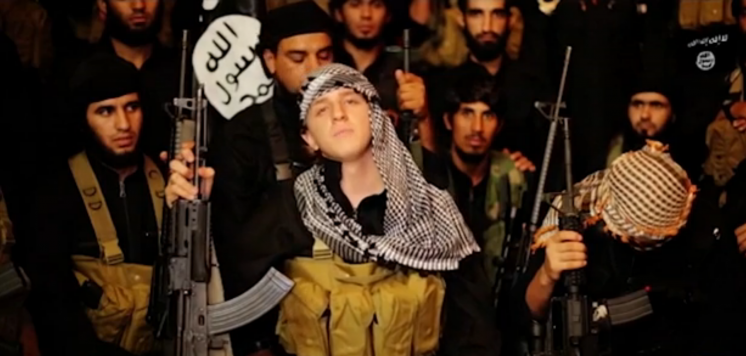By Ari Salas
Two attacks in Canada inspired by the militant group ISIS mark a shift in mentality: its tentacles can reach deep into Canada.
In the last few weeks several similar attacks and signs of homegrown ISIS activity have materialized around the world.
Abdullah Elmir, a 17 year-old jihadist in Australia, delivered a chilling warning to the people of America, Britain and Australia on Tuesday.
“We will not stop fighting and put down our weapons until we reach your lands until we take the head of every tyrant and until the black flag is flying high in every single land, until we put the black flag on top of Buckingham palace and put the black flag on top of the White House we will not stop and we will keep on fighting and we will fight you and we will defeat you,” said Elmir.
In the United States, three Colorado teens were caught planning a move to Syria after communicating online with a source there.
An apparent subway attack plot was stopped that also targeted the subway in Paris. Also in France an entire family of 11 were caught leaving for Syria from Nice.
Centre for International Governance and Innovation researcher Simon Palamar said the recent attacks in Canada are the result of self-radicalization.
Palamar, whose focus is global security and politics, said most of the Canadians who have gone to Syria to fight appear to be self-radicalized.
“You have a group overseas whose ideology is a very particular brand of Islam but they’ve also been very successful lately in achieving very specific political goals,” said Palamar.
“Since ISIS has been successful in doing this it acts as a clarion call to people around the world who might be sympathetic to that world view already,” he said. “Success overseas creates an incentive to people in Canada to go overseas and if they can’t they may lash out here.”
Recent violence outside Syria and Iraq may be more a sign that ISIS is strengthening recruitment efforts rather than a sign that ISIS is aiming to directly attack Western countries, said Palamar.
“Part of it is it’s a classic bargaining chip: the United States is conducting air strikes so ISIS in turn attacks with the hope they can change American foreign policy,” he said. “Another explanation is ISIS needs the United States to attack them to bolster recruitment. This reinforces ISIS’s narrative of the west being utterly hostile around the world and it becomes a very useful recruitment tool.”
Who was the Ottawa shooter? Michael Zehaf-Bibeau’s criminal record in Quebec, B.C. http://t.co/MXuF6ZebiC pic.twitter.com/dnRhQiEk3T
— CBC British Columbia (@cbcnewsbc) October 23, 2014
Prime Minister Stephen Harper said the attack will strengthen Canada’s fight against terrorist organizations.
“In fact, this will lead us to strengthen our resolve and redouble our efforts and those of our national security agencies to take all necessary steps to identify and counter threats, and keep Canada safe here at home,” said Harper.
Canadian officials revoked the passports of almost 100 Canadians in late September in an effort to combat internal terrorist threats. Martin Couture-Rouleau, the man who struck and killed two Canadian military members with his car on Monday in Quebec had his passport revoked months earlier, the RCMP said Tuesday.
Palamar said taking a passport is the final step the RCMP will take after all policing efforts have failed.
When there is behavior consistent with an attempt to go overseas and join a terrorist group the RCMP may step in to disallow this action.
Revoking someone’s passport can be dangerous though, especially when the person has become radicalized.
“The argument against that sort of policy is that you’re tightening the noose around them. If they can’t go overseas to fight they will do something at home,” said Palamar.
There is also the possibility that someone who has gone abroad may return and commit an attack at home. In May a gunman opened fire at the Jewish Museum in Belgium killing four people.
The prime suspect is somebody who appeared to have travelled to Syria and received training, said Palamar.
“They were radicalized, they were better trained, they were battle tested and therefore better equipped to commit a terrorist attack in their home country,” he said. “That is a scenario that authorities are really tying to avoid, making revoking passports necessary even when creating the risk they’ll do something rash at home.”
Palamar said the incident in Australia was not entirely self-radicalized.
“The incident in Australia was unique in that there was someone whose widely believed and almost confirmed to be an ISIS member attempting to order a sympathizer in Australia to conduct an attack,” said Palamar. “That may have been a situation where there is a recruitment and radicalization network in Australia, there appears to be a trend of ISIS branching out.”
He said motivation for ISIS sympathizers is built around a general message, but individuals joining the fight have more complex reasons for this decision.
“There’s certainly that revenge narrative, there also tend to be other factors like trouble at home, personal, economic or legal. It’s generally a combination,” he said.



